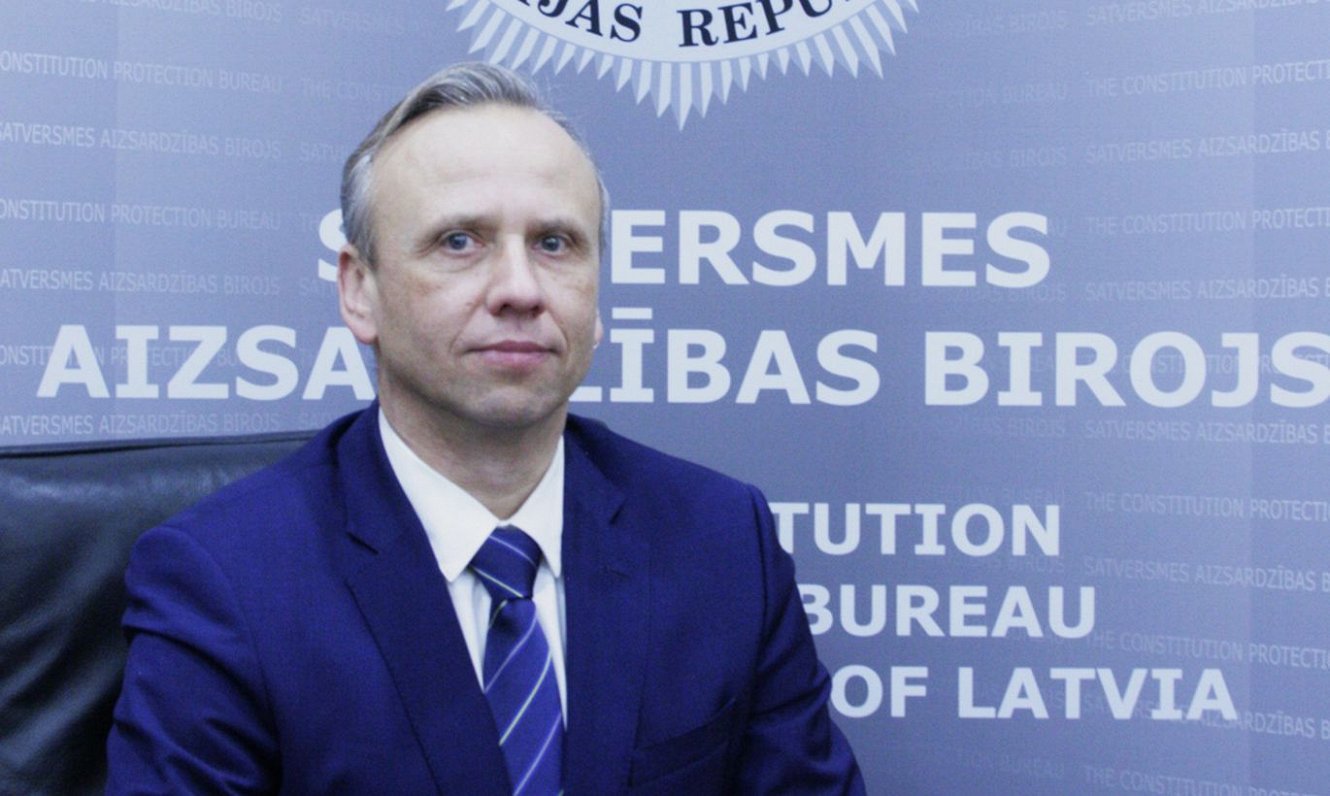In his foreword, SAB Director Egils Zviedris provides a sobering introduction to what is in general a downbeat assessment, saying:
"Security in the world and in our region continues to balance on a fragile thread, and the future prospects do not inspire much optimism either."
"Russia continued its imperial[ist] efforts to completely subjugate Ukraine, and there is no sign of that changing. According to Russia’s heightened perception of threats, the war in Ukraine remains a part of the global confrontation with the West, which is supposedly trying to destroy Russia. This is why the West will have to reckon with Russia’s military aggression in Ukraine in the long term. It is also expected that Russia will continue to implement influence measures against Western countries, including Latvia, increasingly directly demonstrating its hostile attitude," states the SAB 2023 annual report.
Despite western sanctions, Russia still has not become completely isolated internationally and is still able to pursue its interests. The Kremlin’s ability to harm and destabilize has diminished, but not disappeared, SAB warns.
"Russia is constantly spreading propaganda messages about Ukraine being an unreliable partner who [sic] cannot effectively use the Western military and financial support or even misuses it. Moscow is also trying to influence the Western society and political leadership by emphasizing the huge financial burden that is supposedly created by the support for Ukraine," states the report.
Decreasing Western support for Ukraine could mean not only the occupation of new territories, but also destruction of the already significantly wounded security architecture of Europe. Without a substantial increase of the Western support for Ukraine, Putin’s regime will gain confidence in its ability to influence the West, SAB believes.
"A favourable outcome of the Russian influence measures would be Latvia or its allies questioning their strength and unity. Every successful (or at least publicly presented as such) influence measure strengthens Kremlin’s ambitions by making it look like Moscow is calling the shots," says the report.
Getting a bit more specific among lots of general analysis of internal Russian affairs, the report lists a few instances of targeted disinformation efforts in Latvia.
"The messages of Russian Embassy in Latvia have also become more aggressive and provocative. The Embassy’s social media accounts are regularly spreading false and misleading information on topics like Latvian domestic policy or history. It is a common practice authorised and encouraged by Moscow, but the Embassy’s rather small audience and limited ability to attract new followers prevents these messages from causing much damage.
"Despite their limited access to foreign audience, Russian media still carry out specific disinformation campaigns against Latvia and its top officials. In 2023, extensive and blatantly false films were broadcast about the former President of Latvia Egils Levits (in May), the at the time newly elected President Edgars Rinkēvičs (in July) and the Prime Minister Evika Siliņa (in October)," outlines SAB.
"One of the “leading experts” commenting the statements made in the films was Dmitry Yermolaev, a SAB identified Russian intelligence officer, who was assigned to work in the Russian Embassy in Riga from 2002 to 2005. While this content is primarily intended for the domestic audience as a confirmation for the politicians’ statements on the “degenerate” Latvian officials and their hostile attitudes towards Russia, it is also used by Moscow to maintain a negative attitude towards Latvia and its top officials among people in Latvia who still consume pro-Kremlin media content," the security agency points out.
As well as dwelling on Russia at considerable length, the report also provides an assessment of the political processes in Belarus, which also borders Latvia.
"Belarussian society remained highly dissatisfied with the political situation in the country, but the widespread repressions against the political opposition, media, non-governmental organizations and civil society have significantly reduced the possibility of any wider protests," says SAB.
The report emphasizes that China’s interests and political and economic presence have also become more noticeable in the region and SAB states that potential and existing Chinese partners in Latvia should take into account that cooperation with China comes with significant risks. In particular, academic exchanges are noted as an area of concern.
"Chinese students and researchers gain experience and knowledge and develop skills, and the knowledge they provide in turn contributes to the Latvian academic environment and research. But there is another side to this cooperation. Chinese nationals, even when abroad, are subject to state control, maintaining a regular contact or reporting back on their activities and impressions.
"Upon returning to China, they may also be forced to hand over the information and knowledge they have acquired, if it is regarded as potentially contributing to the Chinese security and prosperity. The risk is particularly high when cooperating with students who have been awarded a Chinese scholarship for studying abroad, as these students are often subject to various conditions, such as the obligation to work in the public administration for a certain period of time after their studies or maintain a contact with the Chinese Embassy to report on their activities," sayd the report.
"Although economic cooperation with China is beneficial, other goals might be hidden within it, endangering not only the parties involved, but also national security," SAB advises.
The report also includes a few statistics about SAB's work during 2023. During the year issued 1,047 security clearances for access to national classified information, including 333 'Top Secret' security clearances. It also denied access to national classified information in six cases and revoked one previously issued security clearance.
In 2023, SAB also issued 2,284 security clearances for access to NATO classified information, and 2,313 security clearances for access to EU classified information. In 2023, SAB denied access to NATO and EU classified information in eight cases.
The full text of the report in English is available here.
The Constitution Protection Bureau (SAB) is one of the three Latvian Security and Intelligence Services alogside the State Security Service (VDD) and Defence Intelligence and Security Service (MIDD).





























